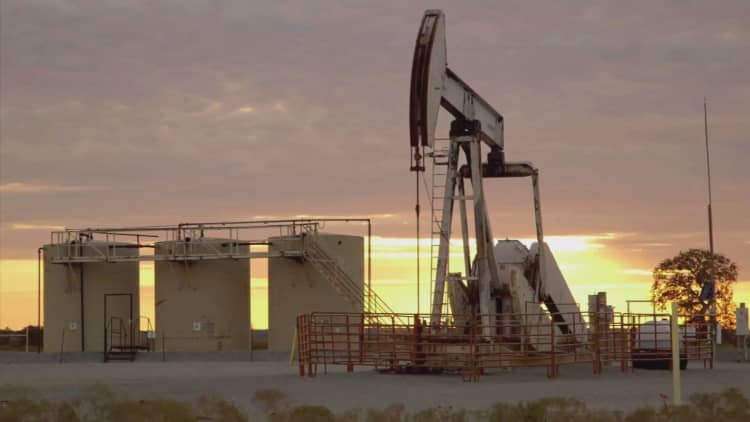
Barclays is the latest bank to raise its forecast for medium-term oil prices, saying it now expects them to peak sooner than expected as a supply shortage develops.
The bank said Tuesday it now sees oil prices averaging $85 a barrel by 2019, slightly higher than its prior view and one year ahead of its last assessment in October. Barclays previously saw Brent at $83 a barrel in 2019 and $85 a barrel in 2020. It now expects the oil price to peak in 2019 before declining to $78 in 2021.
The assessment diverges from recent revisions by the likes of Morgan Stanley, which sees a more gradual rise to lower highs, and Raymond James, which expects a near-term spike followed by moderating prices.
Even in a low-demand scenario, the oil price that drillers need in order to justify developing new supply remains substantially below the forward curve for crude futures, Barclays said, reaffirming its assessment from the October report.
But the bank now believes the chance of a supply shortage has increased after crude futures' surprise dip to 12-year lows this winter, which contributed to further capital spending cuts and a spike in first-half energy sector bankruptcies.
Barclays concluded that falling capital spending has also accelerated the pace of production declines at some existing oil fields because the natural rate of declines has not been offset by regular maintenance. Essentially, that means drillers will get less out of wells over the long term.
"On the supply side, the one-two punch of capex reductions on current and future production is likely to create a shortfall in production over the coming years, and we show evidence that decline rates are already accelerating," the bank said.
Barclays notes that capital spending in upstream exploration and production is set to fall for a second consecutive year, which is something that has not happened since the 1980s. Capital expenditures around the world are projected to fall between 40 and 45 percent from 2014 levels, with North American spending down 60 percent.
Lower supply would, however, be partly offset by a reduced demand forecast, Barclays said.
In Barclays' view, the catalyst for the ultimate rebound will be a move to $60 a barrel that sparks a more drilling in the first half of 2017.


